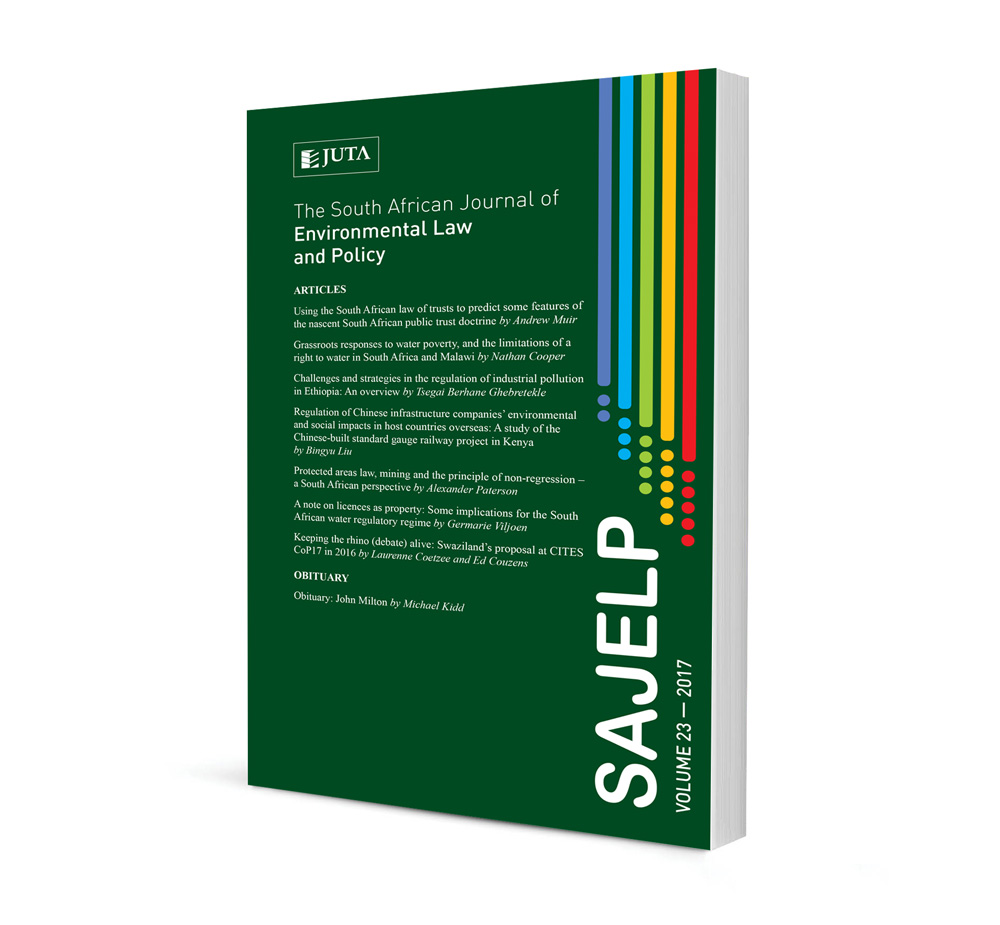
Energy efficiency: The progress of policy, legislation, and the role of the courts in South Africa
Authors Willemien du Plessis
ISSN: 2616-8499
Affiliations:
Source: South African Journal of Environmental Law and Policy 2018, p. 175 – 203
Abstract
Energy efficiency measures reduces energy intensity and lead to energy savings. It is seen as one of the ways in which to address the reliance on coal-based energy and its negative consequences. South Africa has various policies and laws that refer to energy efficiency. The Draft Post-2015 National Energy Efficiency Strategy sets energy efficiency targets for the public, private and transport sectors. The National Energy Regulator of South Africa (NERSA) is mandated to approve electricity tariffs and prices, amongst others. These tariffs have to be approved in line with the Multi-Year Price Determination (MYPD) Methodology, which also refers to energy efficiency. In a 2016 Gauteng High Court decision the court referred to the fact that Eskom encouraged its customers to use less energy, while the Supreme Court of Appeal did not refer to either energy savings or energy efficiency. The aim of this note is to discuss energy efficiency in light of the progress of policy and legislation and to indicate a possible role for the courts in this regard.